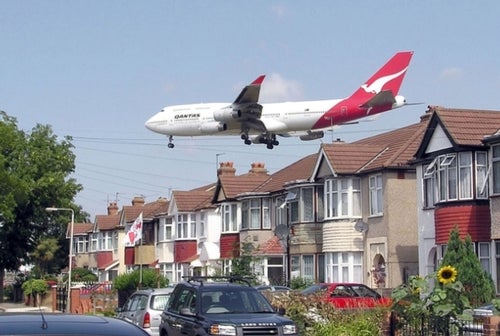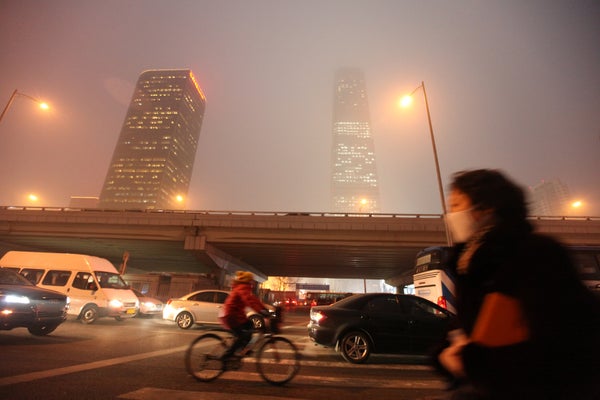This article was published in Scientific American’s former blog network and reflects the views of the author, not necessarily those of Scientific American
An estimated 6.5 million people die prematurely each year due to air pollution – the equivalent of one person every five seconds. All. Year. Long.
Of these early deaths, the majority (3.5 million) result from indoor air pollution while the remainder are caused by dirty outdoor air, particularly in urban areas. According to the International Energy Agency (IEA), the latter is projected to rise by 50% by 2040 without action to reduce global air pollution levels.
But, a small (7%) increase in total energy investment could reduce air pollution and save millions of lives each year according to the IEA’s special report “Energy and Air Pollution”, which was released on Monday.
On supporting science journalism
If you're enjoying this article, consider supporting our award-winning journalism by subscribing. By purchasing a subscription you are helping to ensure the future of impactful stories about the discoveries and ideas shaping our world today.
This finding stems from the fact that the air pollution problem is truly an energy problem, says the IEA. Indeed, energy production and use “are the most important man-made sources of key air pollutant emissions” around the globe and are responsible for “85% of particulate matter and almost all of sulfur oxides and nitrogen oxides” released into the air each year.

In the United Kingdom, an estimated 7,500 premature deaths occur each year nationwide due to air pollution from the UK’s transportation sector.
Photo of Qantas plane on approach to Heathrow Airport by Arpingstone and found using Creative Commons.
In their “Clean Air Scenario” published in this week’s report, the IEA shows how energy policies combined with a 7% increase in total energy sector investment through 2040 could “produce a sharp improvement in health” across all countries. In this scenario, early deaths due to air pollution would decline overall by 3.3 million people per year by 2040. Of these avoided premature deaths, just over half (1.7 million) would result from reductions in outdoor air pollution levels with the balance (1.6 million) due to drops in indoor/household air pollution.
These improvements would be achieved using existing technologies and “tailored to local conditions” says the IEA. More specifically, their success would rely on three key actions:
a long-term air quality goal
a package of clean air measures for the energy sector including an accelerated energy transition (i.e. more energy efficiency & renewable energy) and more widespread use of advanced pollution controls
strict monitoring & enforcement and effective communication
According to IEA Executive Director, Dr. Fatih Birol:

In China, air pollution led to 1.2 million premature deaths and 25 million healthy years of life lost in 2010, corresponding to economic loses of up to USD 1.4 trillion.
Photo of Beijing in 2005 after two days of rain and during a smoggy day by Bobak via Wikimedia Commons.
“We need to revise our approach to energy development so that communities are not forced to sacrifice clean air in return for economic growth…Implementing the IEA strategy in the Clean Air Scenario can push energy-related pollution levels into a steep decline in all countries. It can also deliver universal access to modern energy, a rapid peak and decline in global greenhouse-gas emissions and lower fossil-fuel import bills in many countries.”
The new IEA report is available for free download here <link>.
Related posts:
Cleaner Air Helps Children in Los Angeles Breathe Easier (March 19, 2015)
The Immediate Health Benefits Make Decarbonisation a "No Regret" Strategy (June 23, 2015)
Should Transportation be Free in Cities with Bad Air Quality? (March 14, 2014)
Transportation Changes Quickly Cleaned Up the Air - Now What? (May 30, 2014)
Electric vehicles won't eliminate urban air pollution - but they could help (a lot) (November 26, 2015)
